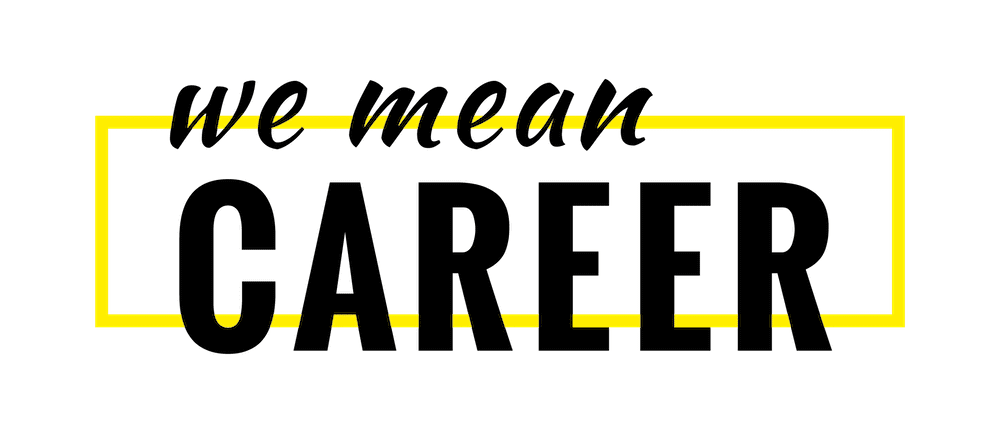THINGS YOU SHOULD NEVER SAY DURING A JOB INTERVIEW
We all know that interviews can be anxiety-inducing, but there are simple ways to increase your chance of getting hired.

Listed below are some key phrases to avoid in a job interview! We hope they help you secure the job of your dreams!
1.What does your company do? Or what is the job title, again?
It’s crucial to show your future employer that you are a competent and prepared individual who takes initiative. Always do your due diligence, and research both the company and the position for which you are interviewing. Show up with a strong grasp of your intended role, and an action plan for how you will contribute to the company. Your future employer will notice and approve of your efforts!
2. I didn’t get along with my boss
While it’s not uncommon to have a complicated or less than perfect relationship with your employer, it’s crucial that you can be diplomatic and mature when discussing your previous experience. Openly admitting that you didn’t get along with a previous employer can prompt them to question your ability to communicate or work in a team, ultimately decreasing the chance that they will hire you. This might also elicit fear that you will leave the new job and publicly criticize your new employer and company! You don’t need to be fake, just neutral!
3. I don’t care what jobs you have available—I’ll do anything!
This tip may seem counterintuitive to you—after all, it is very important to show enthusiasm for the company that is interviewing you. However, by emphasizing your desperation for a position, you are also devaluing your own skills. The new employer may begin to think that you have been passed over many times for positions in other companies, or that you don’t feel that you have a strong and specific skill to contribute to the company. Keep calm and never sell yourself short.
4. This will be a great stepping stone to my next career move
No employer wants to feel as if they are just a stop on your career path. Interviewers are looking for candidates who are interested in their positions and see the value in the work a company does. They are not likely to hire someone who they believe will briefly work for their company before jumping ship. Even if you know that you only plan to work there for a year or two—you shouldn’t share this. Besides, you may end up sticking around longer than you plan, and it’s best to leave your options open.
5. What’s the salary and how much vacation time do I get?
A blunt question about salary and benefits will signal to your employers that you are not interested in the work, just the money, and benefits. Further, it gives the employer the opportunity to low ball your salary as they now believe you are unaware of what sort of compensation you deserve for the position. While you may discuss salary and benefit expectations during job interviews, you should do your own research on the expected earnings for the position. Once your employer mentions salary, this is your opportunity to negotiate!
6. Um, I don’t know
While you are not expected to know everything, you should avoid saying that you “don’t know” something. It shows you did not put any thought into your response. It’s better to clarify with them, if you don’t understand what they’re asking of you. Or, if you understand but don’t quite have the answer, try to blend a similar experience into your response, to at least show that you are capable of critical thinking. Your potential employer wants evidence that you are resourceful and able to find solutions to problems. You can read more about what to do when you don’t know an answer here: What To Do If You Don’t Know The Answer In A Job Interview
7. I don’t have any questions for you
Another key aspect of interview preparation is planning questions for your interviewers. While you may think an interview is all about what your interviewers want to know about you, they are also looking for meaningful engagement with their mission and your future role. Having questions prepared shows that you take initiative and care about the company and the particular job for which you are interviewing.
8. I’d like to start my own business as soon as possible
As we have mentioned before, no employer wants to feel that they are just a short stop on your path to another job or career. Employers are seeking individuals who are interested and committed to the position they are looking to fill. Don’t shoot yourself in the foot by jumping ahead of the position before you!

9. I don’t have any weaknesses
While you shouldn’t emphasize your weaknesses, it is inevitable that you have some. Claiming to not have any weaknesses will cause an employer to think you are delusional and overestimate yourself. In an interview, you must balance honesty and humility and give a concrete answer to this tricky question. Try to choose a weakness that is not critical to the position you are applying for, and make sure that you include how you are continuing to improve this weakness.
10. I hate my job
Similar to trash-talking your previous employer, it’s crucial not to indulge in sharing negative feelings about the job you are trying to leave. Saying you hate your job could signal to future employers that you are difficult to work with and that you might vocally criticize future companies to others. You don’t have to lay it on thick, but remember to be mature and diplomatic!
Conclusion
If you are cringing over something on the list that you’ve done in a past interview, put your focus forward! We commend your efforts to prepare for your next interview by reading our articles. Keep these tips in mind, and you are one step closer to securing your next job!
If you want to hone your interview skills, sign up for our online video course “How To Ace A Job Interview.”




